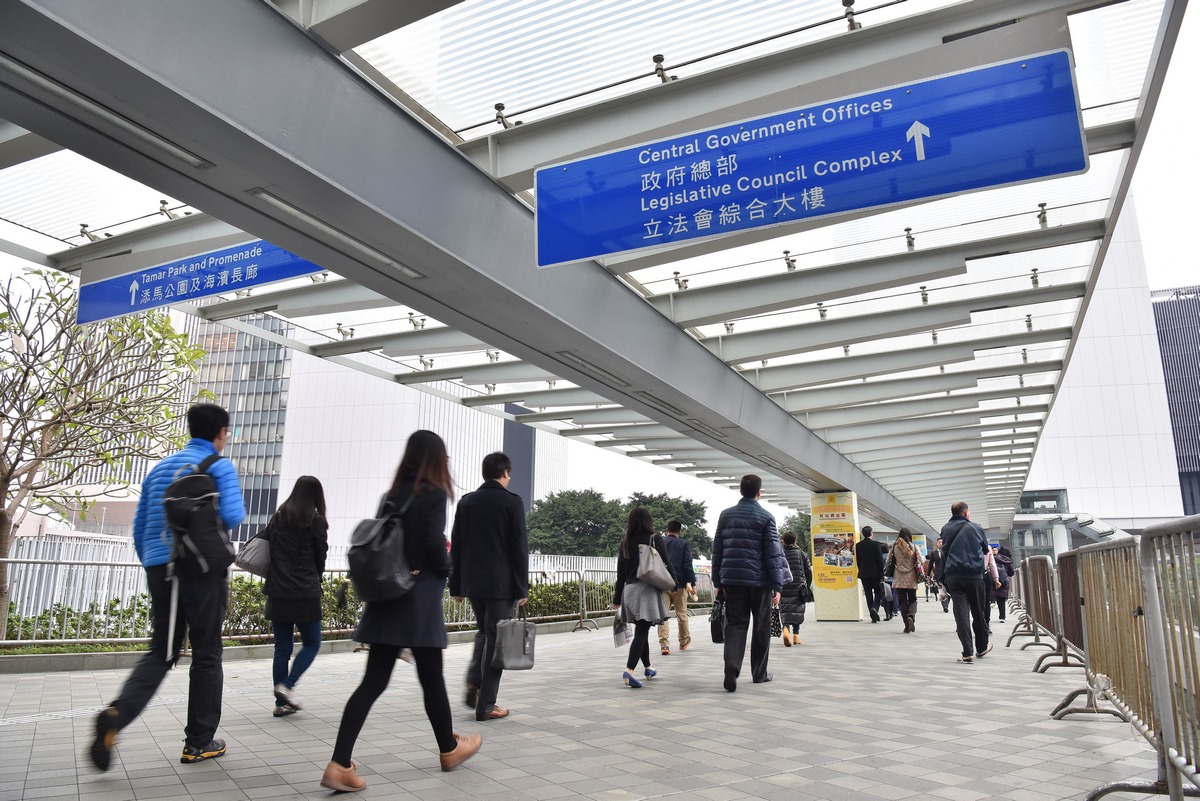Temporary and short-term staff will have to join civil servants in declaring allegiance to the Hong Kong government and vowing to uphold the Basic Law, says the Secretary for the Civil Service Patrick Nip.
The head of the Civil Service Bureau told lawmakers on Monday that the compulsory allegiance pledge – applicable to over 177,000 public servants in the city – would also cover temporary contractors.

Nip said the requirement would apply to these workers – hired on a temporary or short-term basis with contracts up to three years – because they are also employees of the government.
“Later we will handle the non-civil service contract staff… they are also government employees, we will implement the relevant requirement later,” he said.
According to the Civil Service Bureau, such people include seasonal lifeguards, teaching assistants, contract doctors and summer interns for the Department of Justice.
One of the job advertisements states: “Non-civil service vacancies are not posts on the civil service establishment. Candidates appointed are not on civil service terms of appointment and conditions of service.”

Asked whether the loyalty declaration would include district councillors and members of the Election Committee for the Chief Executive, Nip said other bureaus are doing “follow-up work” on the definition of individuals assuming office, who are required to swear allegiance to the HKSAR under Article 6 of the Beijing-enacted national security law.
Last Friday the government told civil servants who have yet to pledge allegiance to send their written declarations back within four week after receiving them, or face possible dismissal. A civil servants’ union formed during the 2019 anti-extradition bill protests, which had openly criticised government policies, was disbanded a day after the deadline was announced.
The authorities said behaviour by civil servants such as promoting or supporting Hong Kong independence, refusing to acknowledge China’s sovereignty over Hong Kong and expressing opinions contrary to the government’s stance in their official capacity, would be deemed to breach the declaration.
At Monday’s meeting, legislators asked if civil servants could still accept interviews from “anti-China media.” The civil service minister gave no direct answer but said the issue was “very clear.” He also did not respond to questions over whether newspaper The Epoch Times and the embattled public broadcaster RTHK were considered “anti-China.”
Support HKFP | Policies & Ethics | Error/typo? | Contact Us | Newsletter | Transparency & Annual Report | Apps
Help safeguard press freedom & keep HKFP free for all readers by supporting our team

























